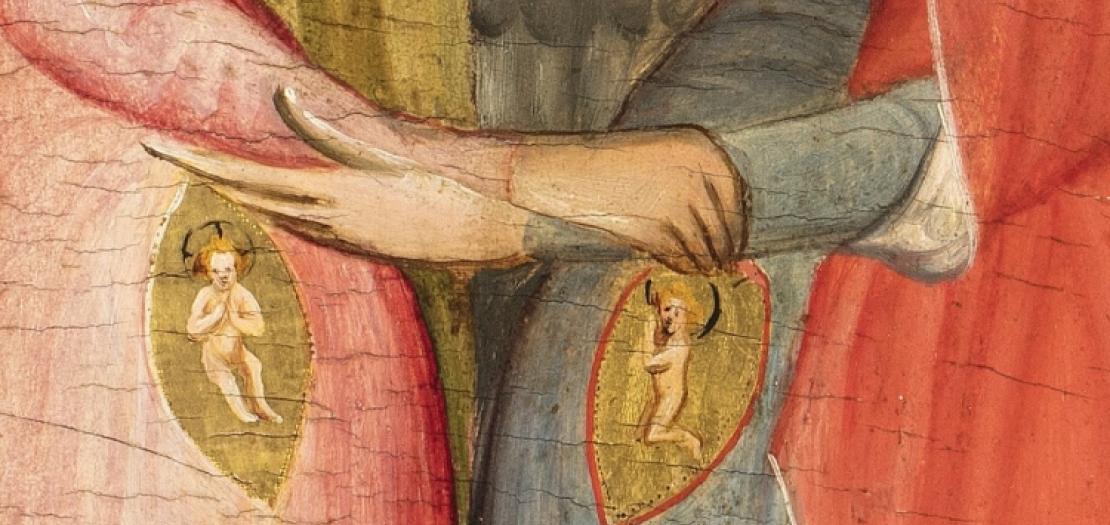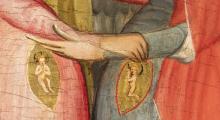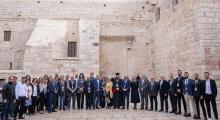Issued by the Catholic Center for Studies and Media - Jordan. Editor-in-chief Fr. Rif'at Bader - موقع أبونا abouna.org

Following is the text of the meditation by Cardinal Pierbattista Pizzaballa, Latin Patriarch of Jerusalem, marking the fourth Sunday of Advent C, dated December 22, 2024:
Today’s Gospel passage (Luke 1:39-45) tells us about the encounter between Mary and her cousin Elizabeth: Mary has just received the announcement from the angel Gabriel and immediately sets off (“In those days Mary set out and went with haste to a Judean town in the hill country.”) (Luke 1:39)
The first element we take from this passage is precisely this: The Lord Jesus, who has just been conceived in his mother’s womb, sets off at once. That is, he begins to do what He will do throughout his earthly life, from the moment of his baptism. He will go to meet people, to bring salvation, to proclaim the Kingdom of God, his ultimate closeness to people. And not only that. He sets out to meet those who welcome him and make him part of their lives.
Mary, who welcomed the Lord, actually sets out on the way. The life of those who listen, of those who welcome, is a life that takes the risk of movement, of change. The listener cannot remain as before.
When you set out, you have a specific goal in mind, namely the encounter.
You set off so that you can meet each other. If we all stood still, we would never meet.
An encounter with the Lord, on the other hand, leads us to set out, to walk towards one another and to share the salvation we have received. So, Mary and Elizabeth meet.
The first act of this liturgy of encounter is the greeting (“As she entered Zechariah's house, she greeted Elizabeth.”) (Luke 1:40). The first chapter of Luke’s Gospel is full of encounters and therefore greetings.
Every greeting has a reference to joy: the angel greets Mary with a greeting that is an invitation to joy (“Rejoice, full of grace, the Lord is with you.”) (Luke 1:28)
The greeting is therefore important: in just a few verses, the terminology appears three times in connection with the greeting. (Luke 1:40,41,44)
But why is the greeting emphasized so much?
The greeting is important because it speaks of an encounter that renews, it is a sign that something new is being realized, that something new is beginning. We greet each other when the bond, the friendship, the relationship is renewed. That is why the greeting brings joy, because it opens the possibility of meeting again.
It is two women who meet, or so it seems. The true protagonists of this meeting are not the two women, but something deeper, something invisible that connects them profoundly, that goes beyond their story. It is the two babies who, through their lives, reveal the mystery of God’s work that the two women carry in their wombs. The work of God in which they both believed and to which they gave space.
They recognized the work of God that dwells in each other’s lives.
The first to do this is Elizabeth (“Blessed are you among women, and blessed is the fruit of your womb.”) (Luke 1:42): She sees Mary and recognizes in her the mother of the Lord, the one who has believed.
Nothing about Mary’s outward appearance suggests this.
Elizabeth does not see with the eyes of the flesh, but with the eyes of the heart, which is filled with the Holy Spirit. (Luke 1:41)
It is precisely the Spirit who illuminates Elizabeth’s gaze, enabling her to see the truth and beauty of what is falling. It happens that the Lord has a mother and that he therefore He enters world history, that He goes among men (“why has this happened to me, that the mother of my Lord comes to me?” ( Luke 1:43)
And so, it is that the mother of the Lord, who has accepted the word of God and believed in it, voluntarily sets out to meet Elizabeth. Mary sets out to recognize the work of God in her cousin’s life. The work of God that can bring life to those who believe, even where everything seems finite and barren, incapable of newness.
“When Elizabeth heard Mary’s greeting, the child in her womb leaped.” (Luke 1:41)
Revealing all this to Elizabeth is not a thought, not a conviction: revealing it to her is her womb, which until that moment was considered barren (“this is the sixth month for her who was said to be barren”,) (Luke 1:36) and which now not only bears within it a life, but also a life capable of leaping with irrepressible joy, as if before a long-awaited fact that is finally near.
+ Pierbattista







